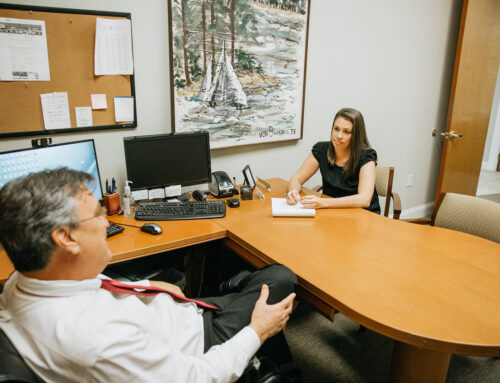One of the most distressing aspects of being in financial difficulty is having to endure harassing calls from creditors and collection agencies. On November 30, 2021, that harassment may have been increased, thanks to the administration’s new legislation.
The new rules fundamentally changed the ways in which debt collectors can contact those who owe them money and try to collect payment. The new law allows debt collectors to reach out via social media accounts and text messages.
It is important to remember that debt collection efforts in and of themselves are not evil or illegal. Creditors have the right to expect repayment. However, given the history of harassment and aggressive collection methodologies, it can be understood why the new rules have raised concerns. They have also given scammers new avenues to access unsuspecting people.
Remember, when you file for bankruptcy, all collections efforts cease according to law.
2 New Ways Collections Agencies Can Reach You
Social media: The new rules allow agencies to contact debtors through social media. However, they must follow the rules to do so – most notably, they can only contact you privately and cannot publicly post any details about your situation. They are limited to private messages and private notes on your wall.
Additionally, they have to identify themselves as a debt collector when they send you a friend request – so be sure to read profiles and messages carefully before accepting their friend request.
Email or text messages: While debt collectors can now add text messages and emails to their arsenal of communication tools, they also have limitations here. All creditors are required by law to offer an option to “opt-out” from receiving additional messages.
While this option is always available, they sometimes make it difficult to locate or readily see. Look for the unsubscribe or opt-out link in an email, typically at the bottom of the correspondence. Future text messages can be blocked by simply texting “STOP” in response to the text.
Warning Regarding Scammers
If there is an opportunity to trick consumers and scam them out of their money, criminals are willing to participate. In fact, scammers have been at work for decades, contacting people who do not owe them money – yet they try to convince them that they do. Remember, just because someone says you owe them money doesn’t mean that you do. It is best to be aware of those to whom you owe money.
You can obtain a free credit report from several sources that will list the names of legitimate creditors. Anyone else who contacts you will likely be a scam. If you aren’t sure, reply with a message that states you dispute the bill, and ask for validation of the debt.
How to Protect Yourself
- Retain a Bankruptcy Attorney: As stated above, collection agencies are not permitted to contact individuals that are in the bankruptcy process. If you plan to file bankruptcy, retain an attorney and tell all subsequent debt collectors to contact your attorney and cease communications with you. Typically once they learn you have an attorney, harassment will stop.
- Go Private on Social Media: While everyone has grown accustomed to social media and “accepting friends” is commonplace, it is a better strategy to limit your friends’ list to those people you know personally. The more followers you have on your social media accounts that you do not know, the more vulnerable you are to being scammed. If you mark your accounts as “private,” no one can contact you without your permission.
- Keep Two Email Accounts: It is a great practice to have one email for personal communication and one email to give out to online retailers and other commercial entities. Anytime a business asks for your email address, they can share it with anyone they wish. By separating your personal emails, you can more readily identify those you don’t know – or ignore them altogether.
Start the Bankruptcy Process
If you are experiencing harassment from collections agencies and need a relief strategy, call to retain a bankruptcy attorney. We can help you to understand your options and compel the creditors to back off – not to mention solve your financial issues once and for all through the personal bankruptcy process.
Richard V. Ellis is an experienced family law and bankruptcy lawyer located in Sarasota, Florida. He and his team have assisted hundreds of individuals and families in achieving a fresh financial start.





